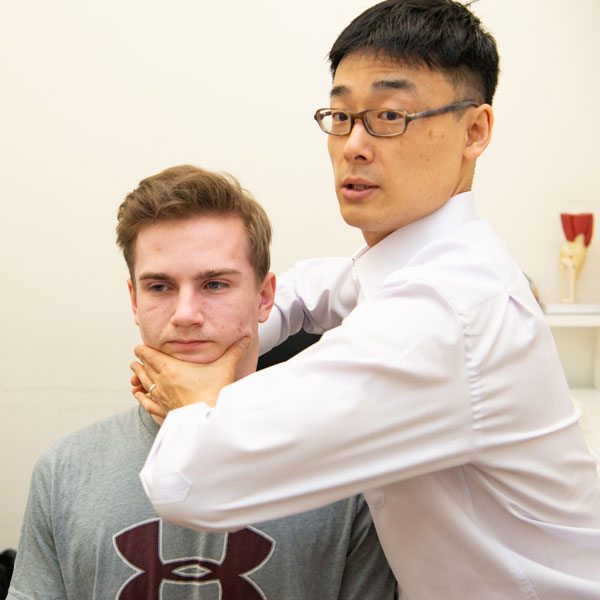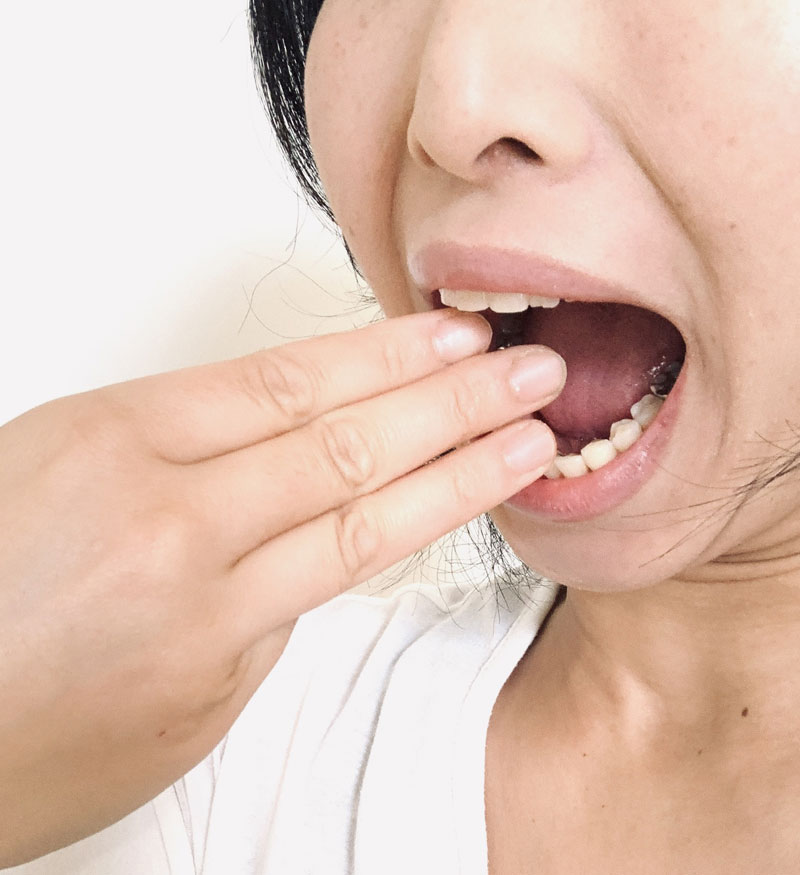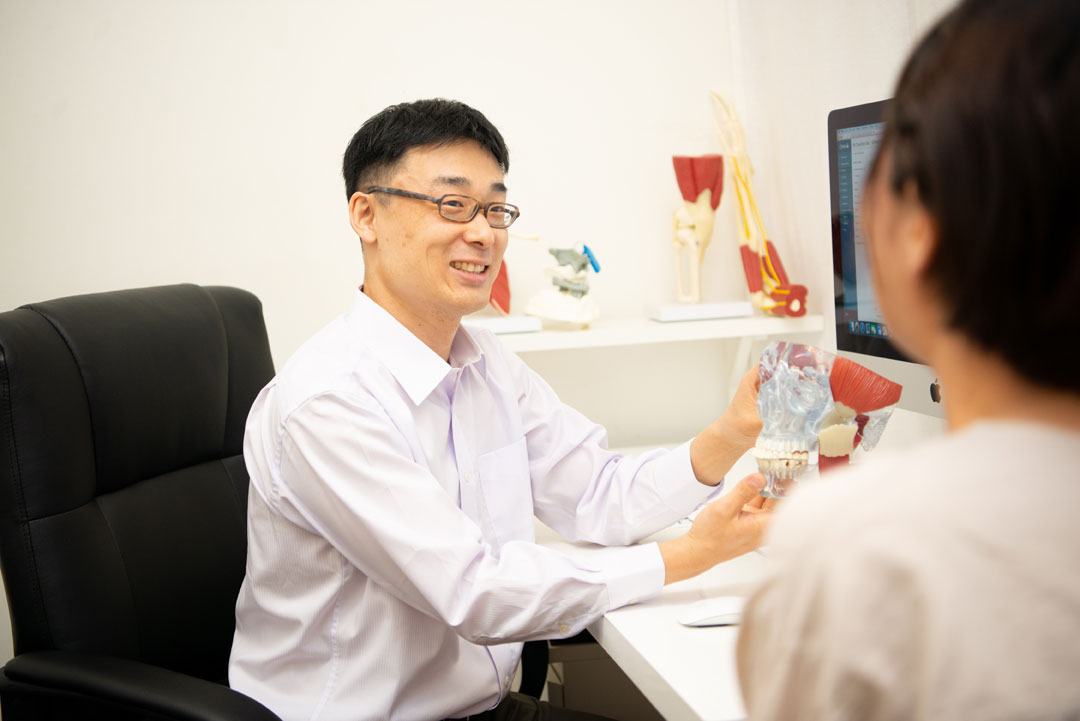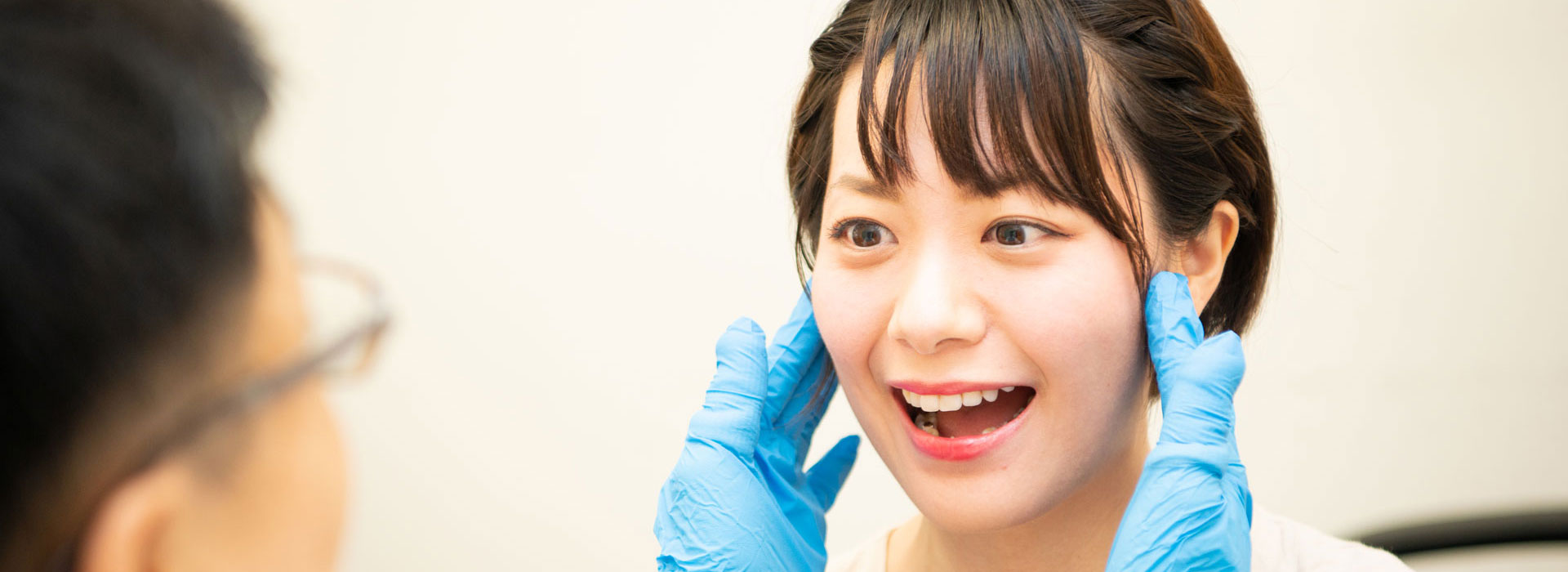Having a pain or problem with the jaw joint can be extremely debilitating as it is positioned very close to your brain where it senses all pains and discomforts.
Jaw is a unique and possibly the most complicated joint in the body. Temporo-mandibular joint (TMJ) dysfunction (TMD) can be treated successfully with physiotherapy since it is seen as a mechanical problem involving joints, muscles and ligaments.
At Metro Physiotherapy, we are specifically trained in TMJ treatment and we have been successfully treating jaw disorders. Backed by years of experience, we are confident in empowering you to regain full function of your jaw.

Signs of Unhealthy Jaw
These are the signs of unhealthy jaw and common complains we often treat:
* Clicking/ Popping Jaw
* Pain/ Tiredness on Jaw
* Locked Jaw (your lower jaw is stuck in either a closed or open position)
* Night grinding (bruxism) / clenching and worn / cracked teeth
* Tight cheek muscles
* Stiff to open mouth
* Mouth does not open straight
* Problems with biting, chewing and eating
* History of facial or jaw injury
Some studies suggest that between 5% and 12% of the population suffer from Temporomandibular joint and muscle disorder (TMD). From our experience, it is not a surprising figure.
Can you put three fingers vertically into your mouth?
This is a simple self check but gives us a good indication about functionality of your jaw joint.
If yes, it’s great, your jaw is healthy!
If yes but with clicking/ popping sounds in the jaw, you could benefit from our self jaw exercise!
If you cannot, or yes with a pain, see us now and get back your healthy jaw and a big smile!

Jaw; the most complicated joint in the body
Jaw joint, also known as Temporomandibular joint (TMJ) is a unique and the most complicated joint in the human body. It is made of a pair of joints, one on each side and it is the only ginglymoarthrodial joint in the body (ginglymo=hinge, arthrodial=glide). That means it moves in 3 dimensions; up and down, left and right, and front and back. You can easily feel its motion by placing your index fingers in your ear canals and opening and closing your mouth.
The makeup of temporomandibular joints is also extremely unique. A lower jaw bone (mandible) is connected to a part of the skull (temporal bone) by a pair of the rounded ends of the mandible, called condyles, only by soft tissues such as ligaments, capsules, tendons and muscles. This makes the jaw joint flexible. Due to the flexibility, the jaw can move smoothly open and close, side-to-side and front-to-back. The structure of the jaw is so different from the structure of the other load-bearing joints, such as knees or hips.
Temporomandibular joint (TMJ) is a pair of joints near your face. The balance of movements and a synchronicity of left and right TMJ are very important for its healthy function. Tightness of the right cheek muscle may be different from the left.
The jaw moves in such a complex manner and it has unique makeup, treating the jaw requires a deep understanding of jaw anatomy and specifically designed techniques. At Metro Physiotherapy, with its detailed assessment, accurate diagnosis and extensive treatment program, we have successfully treated hundreds of clients with jaw problems.
So book in to see our expert TMJ Physiotherapist, Tad Okutani.
Signs of Unhealthy Jaw
We have many TMD patients finally knocking on our door after a long journey. They have gone through a number of different professionals and have spent a long time and a large sum of money in oral splints or filing teeth. Some of them have been advised to have orthognathic surgery too. If oral splints are necessary, we will work with your prosthodontist (who usually prescribes oral splints) to ensure your entire care team is well-informed of your progress.
Jaw is a pair of joints which is connected to a skull only by soft tissues, and often the surrounding soft tissues, which are muscles, ligaments and capsules, are the problems in TMJ. It is like any other joint issues that you go and seek help from physiotherapists such as neck pain.
Oral splints may ease your pain but might be just a temporary solution. Treating TMD and restoring your jaw joint function by physiotherapy may alter teeth alignment too. Thus, we like to hear from you before you consider having any permanent changes on your teeth, such as orthodontics (braces and invisalign), teeth filling and/or filing or oral surgery. This is why many of our patients are referred from their GPs, prosthodontists, dentists, and oral and maxillofacial surgeons for their jaw problems.
TMJ specialised physiotherapy at Metro Physiotherapy can bring an effective relief for your jaw!
Causes of TMD
Several things can cause TMD. In some cases, a few factors are complexly mixed and bring on symptoms. Trauma to the jaw or temporomandibular joint can bring TMJ disorders. But for most, damage to the surrounding muscles, capsules and ligaments that control jaw motion can cause dysfunction. Talking with an expert TMJ physio plays a key role in discovering the cause of your symptom.
Major causes of TMJ problems include:
- Bruxism (teeth grinding) at night
- Clenching involuntarily due to stress or anxiety
- Excessively opening your mouth, for example, yawning, having dental/ orthodontic treatment
- Work requires day-long speaking, like teachers and singers
- Poor chin-poke posture
- Poor tongue positioning
- Injury on face or jaw
- Lying on stomach to sleep
- Mouth breathing
- Sinus issues
- Reflux (gastro-oesophageal reflux = GORD)
These injuries, procedures or habitual factors may cause the jaw joint capsules, ligaments and/or muscles to overstretch, overwork or injurere. Thus it results in the imbalance in TMJ mechanisms. Clicking or popping sound in the jaw is a result of disc displacement each time you open and close your mouth.

Jaw pain, or facial pain can be caused or exacerbated by the presence of auto-immune conditions such as rheumatoid arthritis, psoriasis / psoriatic arthritis, thyroid issues (particularly hypothyroidism such as Hashimoto’s thyroiditis), osteoarthritis, osteoporosis, infected sinus or tooth pain. Our TMJ expert physiotherapist is trained to accurately direct you to the diagnosis and if necessary, we will refer you to the most appropriate specialist from our list of trusted healthcare professionals.
Starting your Jaw Treatment
At consultations, you expect to
Self Exercises Video Tutorials

So we call people with TMD and motivated to restore their jaw function Jawkers, (R).
We have a series of videos about jaw health and exercises based on the latest scientific evidence and clinical results.
Please subscribe to our channel for more tips and Like the videos when you enjoy.
It will cheer us up!!
These are popular videos for self exercise and stretch for your jaw.
Rocabado's 6x6 Jaw Exercises - Practical Version
7 Exercises to Make Perfect Recovery from Jaw Disorder
Oxford stretch exercise for your Jaw
Happy Rehab 🙂













